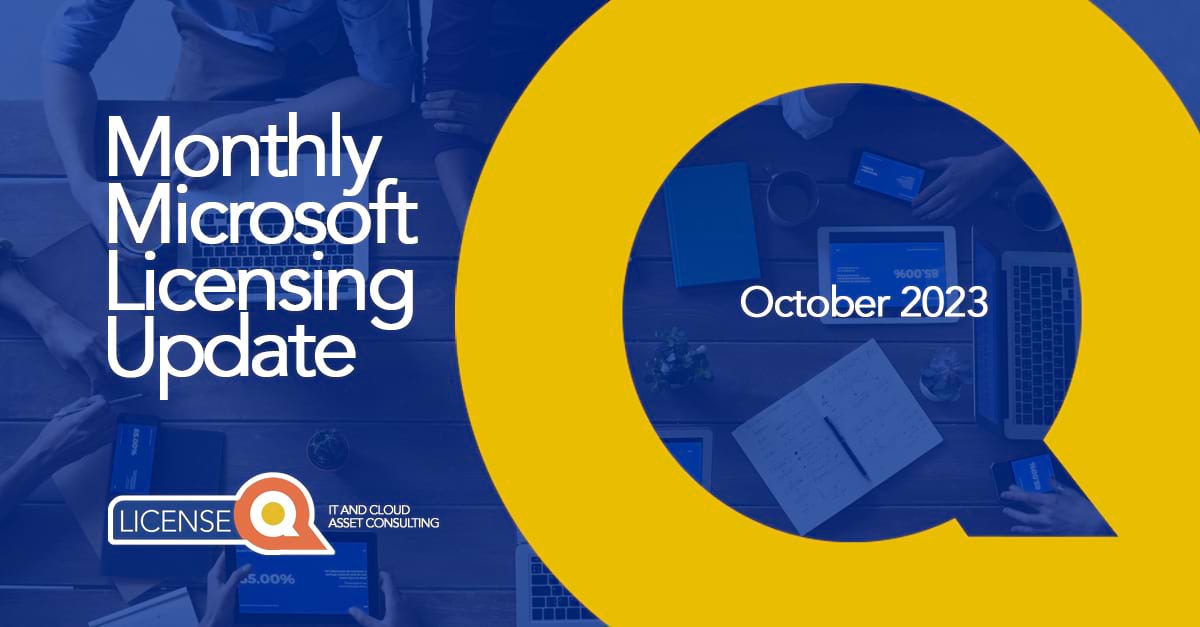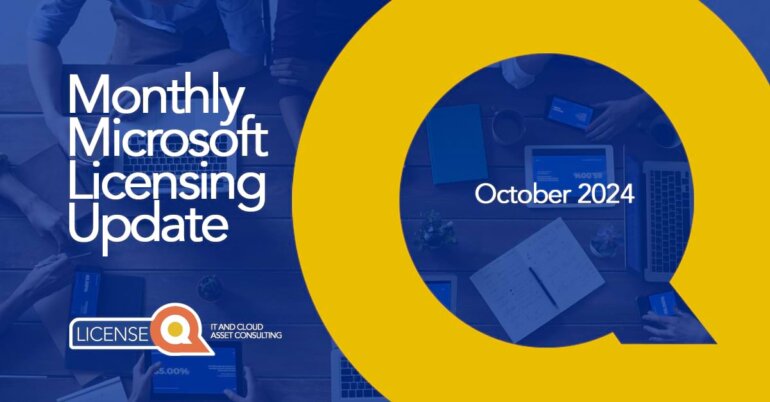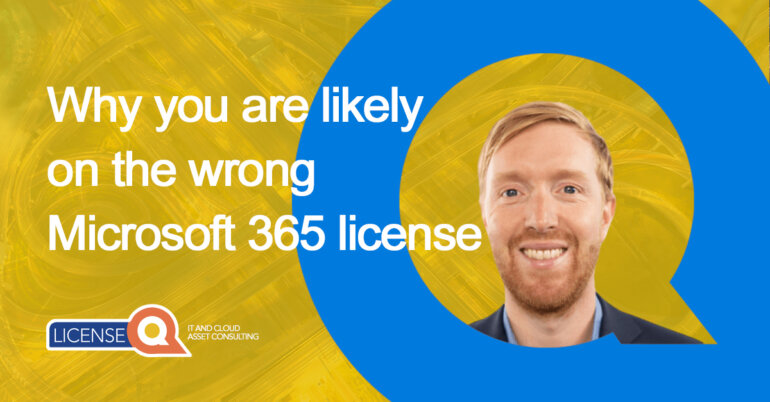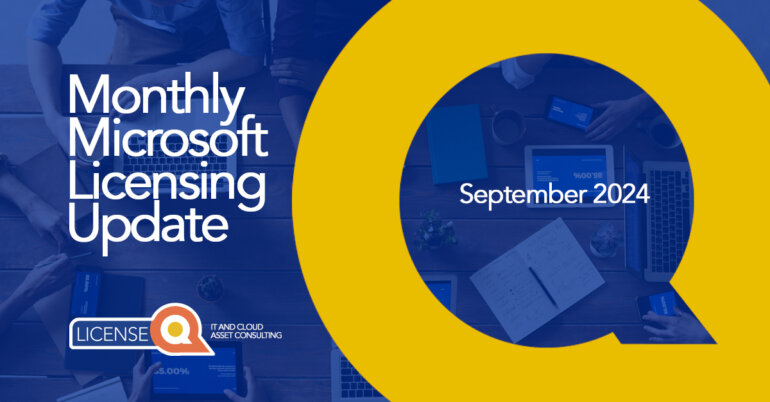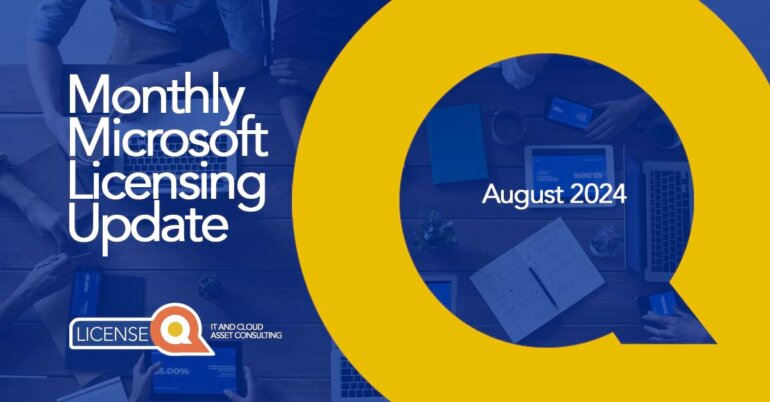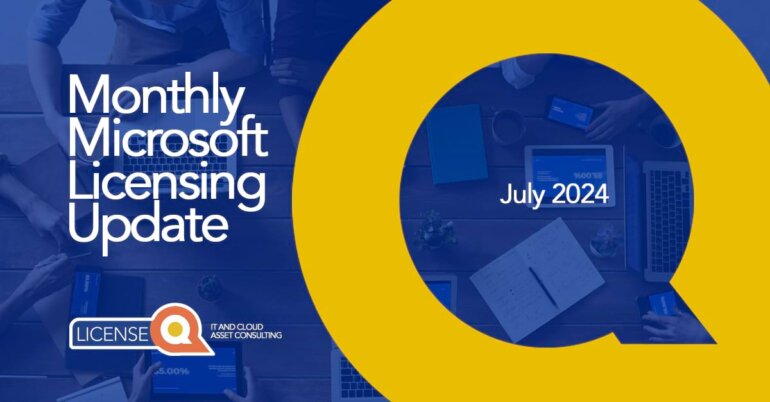Latest Microsoft licensing update October 2023
Topics in this blog:
1. Auto-claim for Power Apps licenses
What is Auto-claim for Power Apps licenses?
Auto-claim is a feature to set up policies that automatically assigns a license to any unlicensed user when they engage with a Power App that requires a license. Microsoft tried self-servicing of Power Apps licenses before; Auto-claim is their updated process.
You can set up these policies from the M365 Admin Center. The policy uses Power Apps per user (recently rebranded as Power Apps Premium) licenses in line with the requirements chosen for the policy. The assumption is that a customer needs sufficient licenses on their shelf to be able to run the assignment. I was not able to confirm how the process works exactly. If you have experience with it, please share in the comments.

2. Microsoft Copilot in Enterprise Agreement update:
We picked up on some rumours about how Microsoft 365 Copilot will be sold in the Enterprise agreement. This is what we know so far:
- It costs $30 per user per month (we already knew this), but has a 300-seat purchase minimum in the EA
- Available for EA, EAS & MCA-E
- The M365 Copilot SKU will be lead status only. This means it will not be included on the published pricelist, but only on the Microsoft internal pricelist
3. Partnership Microsoft & Oracle
Last week Microsoft and Oracle released a statement on their (re)new(ed) collaboration called Oracle Databases @Azure. This new product combines the best of Microsoft and Oracle. If you want to know more about this topic, read my comprehensive blog on what you can expect with Oracle Database @Azure. Read the blog here.
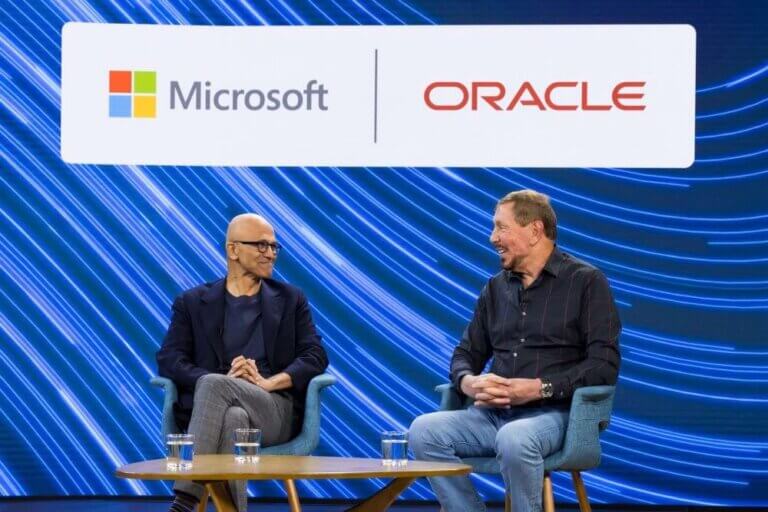
4. Windows Server 2012(R2) & SQL Server 2012 Extended Security Updates
Microsoft removed the Extended Security Updates (ESU) licenses from all published pricelists and made them lead-status. Lead-status means they are only accessible through Microsoft Sales Representatives.
Below are the current options to receive ESU from Microsoft:
- Migrate your machines (Virtual or on-prem) to Microsoft Azure: This was always Microsoft’s preferred option but not necessarily one preferred by Microsoft customers.
- Buy ESU directly from Microsoft (also available through CSP): Although, the pricing is now approx. 25% higher than it used to be. Additionally, the pricing waterfall for this option disappeared as well as the drop in prices from Y1 to Y2 and Y3.
- Move to Azure Arc: You can enroll your on-prem servers for ESU via the Azure portal and they are billed as Azure consumption. This can be the best fit if and when you have Azure MACC or Azure Prepayment. You can read more about this option here.
- Keep them on premises – This is an insider tip! I was recently told that you can keep your machines on-prem and receive four years of ESU for all workloads for free using Azure Stack HCI.

5. Azure Reservations – change to the Exchange option
As of January 1st, 2024, you can no longer use the exchange function for your Azure Services.
This was a useful option for many Azure customers as it provided a lot of flexibility in their Azure reservation strategy, but no more. Any reservations made prior to January 1st, 2024 can only be exchanged one more time after that.
What does this mean? Make sure you go through your active reservations right now! Find out if you can and/or want to make any changes prior to the new year and make those changes! After January 1st you can only change it one more time allowing you to enjoy them for a long time.
Why this change? Microsoft is shifting its focus to their savings plans. This allows you to trade in your Azure Compute Reservations for savings plans via the Trade-in option. You can read more about this here.
The cancellation policy has not changed and will remain in effect as it currently is.

6. Copilot Copyright Commitment:
As of October 1, 2023, Microsoft offers to defend customers from IP infringement claims arising from the use and distribution of the output content generated by Microsoft’s Copilot services.
Microsoft promises to defend a Copilot user if they are sued by a third party for any copyright infringement resulting from the use of a Copilot service. Of course, this can not always be the case. Microsoft will check if you adhered to their specified Copilot rules and regulations. More on this topic below in the Product Terms update as well!
Specifically, the Copilot Copyright Commitment will:
- Cover third-party IP claims based on copyright, patent, trademark, trade secrets, or right of publicity, but not claims based on trademark use in trade or commerce, defamation, false light, or other causes of action that are not related to IP rights.
- Cover the use and distribution of the output content generated by Copilot services, but not the input data, modifications of the output content, or uses of output that you know or should know will infringe the rights of others.
- Require you to use the content filters and other safety systems built into the product and the customer must not attempt to generate infringing materials, including not providing input to a Copilot service that the customer does not have appropriate rights to use.
All in all this reads like a good pledge from Microsoft, especially as this is totally new territory that everyone is moving into. Interesting times ahead if you ask us.
7. Product Terms updates
Generative AI Services
Azure OpenAI terms renamed as Microsoft Generative AI Services. On top of this, the clause was updated with the following terms:
- Reverse Engineering: You may not use any Generative AI service to reproduce any components of the models, algorithms and systems.
- Extracting data: You may not use web scraping, web harvesting or extraction methods to extract data from a Microsoft Generative AI service
- Limit on Customer Use of Output Content: You may not use the Generative AI services to create a competing product
- Data use and access: Microsoft does not use input or output content to train their own services or any OpenAI Service, unless explicitly stated otherwise. Microsoft does monitor this for abusive or harmful uses or outputs
- Data Flows: By using these Generative AI services, you accept that the data may be stored and processed outside of the tenant’s geographic region, unless the service states otherwise. This might be a red flag for many EU companies.
- Intellectual property rights: Microsoft states to not own any output content.
- Bing Search: For any component that uses or is integrated with Bing, Microsoft states that these are covered under the Microsoft Services Agreement and the Microsoft Privacy Statement.
- Copilot Copyright Infringement: Microsoft will assist and defend customers in third-party intellectual property infringement claims, if the following conditions are met:
- You must not have disabled, evaded, disrupted, or interfered with the content filters, restrictions in Metaprompts (=instructions coded into a Microsoft Generative AI Service that provide directions to the service for generating Output Content), or other safety systems that are part of the product
- You do not modify, use, or distribute the Output Content in a manner that it knows, or should know, is likely to infringe or misappropriate any proprietary right of a third party.
- You are allowed to use the data that you use as Input
- The Output Content does not violate a third party’s trademark or related rights
Azure Active Directory
Microsoft changed any reference to Azure Active Directory to the new name: Microsoft Entra ID, this is visible across the entire Product Terms.
Windows Desktop OS
Microsoft added Universal Print per User to the product list
Microsoft 365
Many new product additions or renames to the Microsoft 365 product list:
- Forensic Evidence for Insider Risk Management was renamed to Insider Risk Management Forensic Evidence Add-on
- Microsoft 365 E3 and E5 suites have added their EEA counterparts. This is around the removal of the Microsoft Teams app from the license, which we talked about last month (link). As an example, if you want to find the M365 E3 product for this, this is now called Microsoft 365 E3 EEA (No Teams). A single entry is available for Microsoft Teams EEA. These same updates were made to the Office 365 page for any suites with Microsoft Teams.
- Microsoft Viva Workplace Analytics and Employee Feedback (User SL), Microsoft Viva Employee Communications and Communities (User SL), Microsoft Defender for IoT – EIoT Device License – add-on were added to the list
- Microsoft Syntex and Scheduler were removed
- An additional clarification was added for Teams EEA: Customers in European Economic Area (EEA) countries and Switzerland may acquire and use Microsoft 365 EEA (no Teams) and Microsoft Teams EEA Licenses. Licensing terms for equivalent suites that include Microsoft Teams are applicable to EEA suites.
- An additional clarification was added for Defender for IoT – Enterprise IoT: Microsoft 365 E5 or Microsoft 365 E5 Security customer is entitled to cover up to five concurrent IoT Devices in the context of business operations (EIoT) for each Microsoft 365 E5 or Microsoft 365 E5 Security License. For any additional EIoT device coverage, the customer must purchase one Microsoft Defender for IoT – EIoT Device License – add-on license per additional EIoT device.
Microsoft glossary
Microsoft updated its glossary with all the new definitions around Generative AI Services:
- Copilot means a Microsoft Generative AI Service that is identified as a ‘Copilot.’ Copilot receives its own definition, which is interesting as Microsoft is branding it as such.
- Covered Product means any Microsoft Copilot or Bing Chat Enterprise Product that is available for a fee through Microsoft volume licensing.
- Customize when used in connection with large language or multi-modal models, means to expose a model to Customer Data and instruct the model to use that Customer Data so that the model produces tailored Output Content that is more relevant to a specific customer. When used in connection with Copilots, this is sometimes called “grounding” and the Customer Data used to Customize a model may include information referred to as “grounding data.”
- Input means all Customer Data that Customer provides, designates, selects, or inputs for use by a generative artificial intelligence technology to Customize a model or generate output.
- Metaprompts means instructions coded into a Microsoft Generative AI Service that provide directions to the service for generating Output Content.
- Microsoft Generative AI Service means an Online Service or feature thereof that provides Output Content using generative artificial intelligence technologies.
- Output Content means any data, text, sound, video, image, code, or other content generated by a model in response to Input.
More information
We hope you enjoyed this month’s licensing update. We are genuinely excited about the developments in AI and what this will mean in terms of licensing. As always, we will keep you posted.
Reach out to us with any comments or questions regarding anything in this update or Microsoft in general. You can visit our website for more information on our services or contact our licensing experts at info@licenseq.com.

